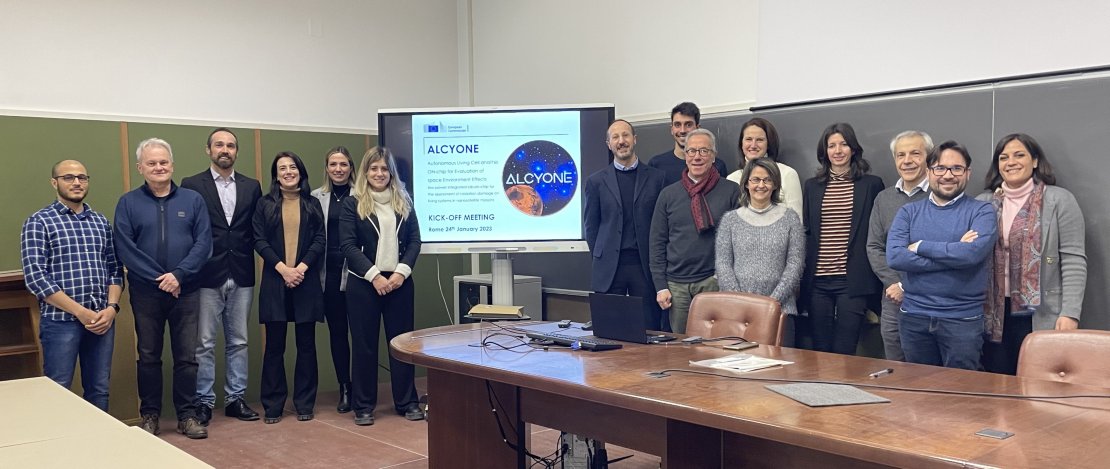The ALCYONE Project (Autonomous Living Cell analYsis ON-chip for Evaluation of space Environment Effects: low-power integrated lab-on-chip for the assessment of radiation damage on living systems in nanosatellite missions) is coordinated by Prof. Augusto Nascetti of the School of Aerospace Engineering of Sapienza University of Rome (Italy) and gathers an international team involving University of Twente (The Netherlands), University of Bologna (Italy), University of Tor Vergata (Italy), Karlsruhe Institute of Technology (Germany), and Kayser Italia s.r.l. (Italy).
The EU-funded ALCYONE project aims at the development of an innovative platform suitable for the in-flight analysis of the effects of the space or planetary environment on model biological systems, as well as the evaluation of proper countermeasures. Indeed, long-term missions in space are dangerous for humans due to the risks of high radiation exposure. Unfortunately, effective solutions have yet to be found. One reason for this is that it is also difficult to carry out the necessary research in a simulated environment. ALCYONE aims to change this by developing an innovative analytical platform for the execution of biological experiments on living prokaryotic and eukaryotic cell cultures exposed to the space environment. The project will design a lab-on-chip with thin-film sensors and actuators that will use bioluminescence to study cell culture and radiation effects on it during space missions. The ALCYONE analytical system will be highly versatile, able to operate in CubeSats but also easily implemented in robotic and manned exploration missions.
The kick-off meeting of ALCYONE Project took place in Rome (Italy) and ONLINE on the 24th of January 2023 organized by the project coordinator at the School of Aerospace Engineering (Sapienza University of Rome).

Note: This project has received funding from the European Union’s Horizon Europe programme under grant agreement No. 101082679






